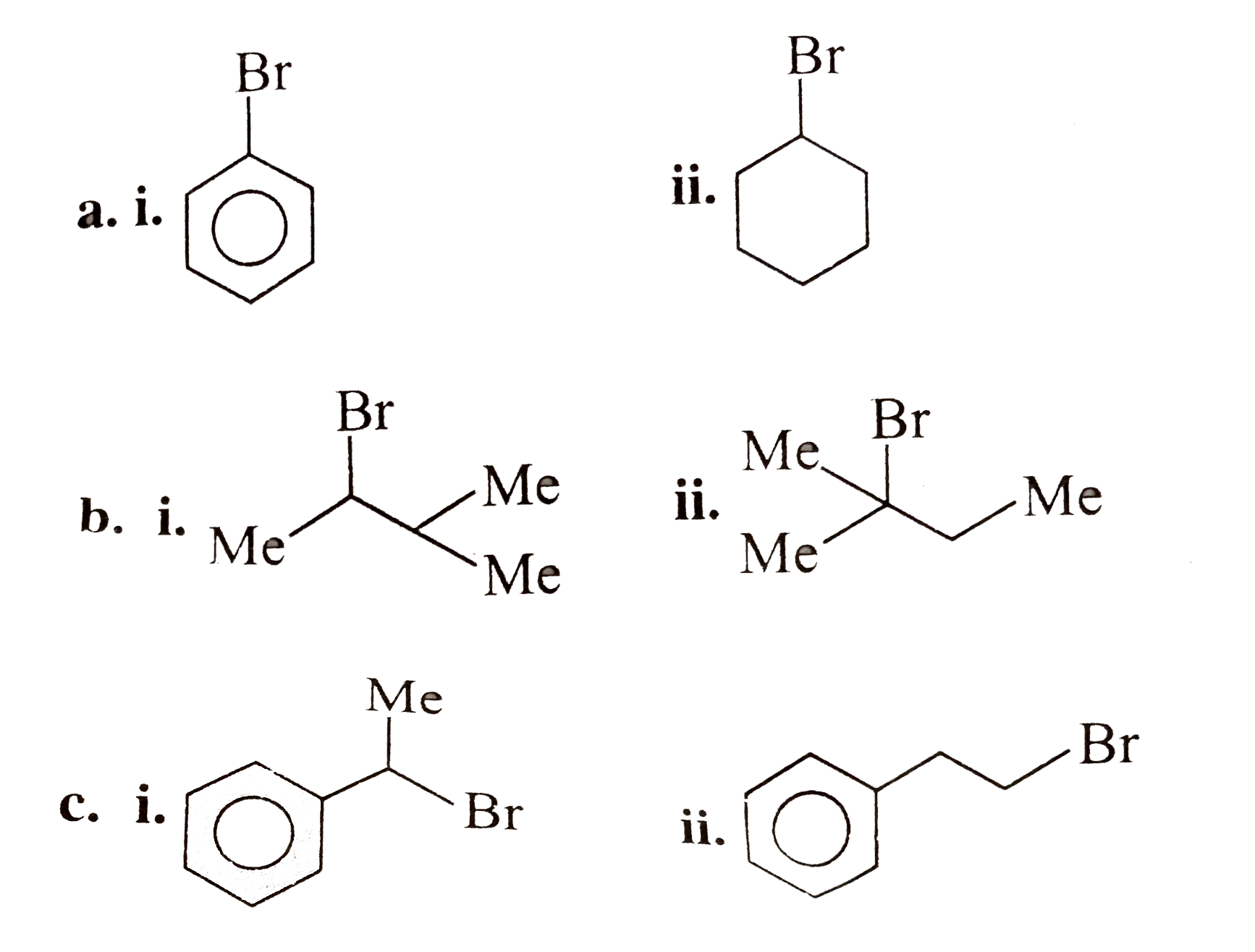t-butyl chloride reacts with mechanism with rate [tert. Butylchloride]. One of the reason for the reaction to be first order is that
stereochemical inversion takes place
t- butyl carbocation is first formed which is more stable
the produced t – butyl alcohol is more stable
the intermediate t- butyl carbocation is stabilised by solvation
The correct Answer is:B
Step by step video, text & image solution for t-butyl chloride reacts with OH^(-) " by " SN^1 mechanism with rate prop [tert. Butylchloride]. One of the reason for the reaction to be first order is that by Chemistry experts to help you in doubts & scoring excellent marks in Class 12 exams.
Updated on:21/07/2023Similar Questions
Knowledge Check
Value of t1/2 for first order reaction is
A0.693KB0.2303KCR2D0.301kHalf life (t12) of first order reaction is
Adependent of concentrationBindependent of concentrationCdependent of timeDdependent of molecularityRelative rate of SN1 reaction for t-butyl bromide?
A37B0.02C106D1
Explain why
(a) the dipole moment of chlorobenzene is lower than that of cyclohexyl chloride ?
(b) alkyl halides, though polar, are immiscible with water ?
(c) vinyl chloride is unreactive in nucleophilic substitution reactions ?
(d) neopentyl bromide undergoes nucleophilic substitution reactions very slowly ?
(e) 3-bromocyclohexane is more reactive than 4- bromocyclohexane in hydrolysis with aqueous NaOH ? (f) tert butyl chloride reacts with aqueous sodium hydroxide by SN1 mechanism while n-butyl chloride reacts by SN2 mechanism.
(g) Grignard reagents should be prepared under anhydrous conditions ?
View SolutionOf the following statements , which are true for SN2 reaction.
(a) Tertiar alkyl halides reacts faster than secondary.
(b) The absolute configuration of product is opposite to that of the reactant when an optically active substrate is used.
(c) The used shows first order kinetics.
(d) The rate of the reaction depends markedly on the nucleophilicity of the attacking reagent.
(e) The mechanism is one step.
(f) Carbocations are intermediate.
(g) Rate ∝ [Alkyl][halides]
(h) The rate of the reaction depends on the nature of the leaving group.
View SolutionFor a first order reaction, the ratio of t1/2 to t3/4 is
View SolutionCo =initial concentration of the reactant Ct = concentration of the reactant at time t, k=rate constant of the reaction. Then the equation applicable for a first order reaction is
View SolutionAssertion:of tert butylchloride with Na gives 2,2,3,3-tetramethy butane
Reason Tert butyl chloride on Wurtz reaction gives alkene.
View Solution

 .
.